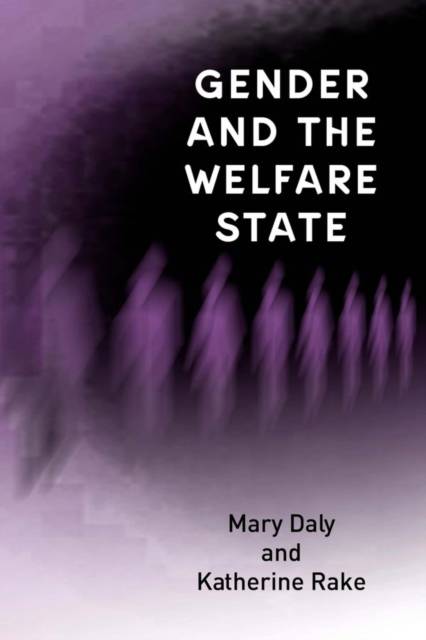
- Retrait gratuit dans votre magasin Club
- 7.000.000 titres dans notre catalogue
- Payer en toute sécurité
- Toujours un magasin près de chez vous
- Retrait gratuit dans votre magasin Club
- 7.000.0000 titres dans notre catalogue
- Payer en toute sécurité
- Toujours un magasin près de chez vous
Gender and the Welfare State
Care, Work and Welfare in Europe and the USA
Mary Daly, Katherine Rake
Livre broché | Anglais
58,95 €
+ 117 points
Format
Description
Gender and the Welfare State explores the configuration of care, work and welfare in eight countries: France, Germany, Ireland, Italy, the Netherlands, Sweden, the UK and the USA. Bringing together the most recent empirical data available, it examines the impact of the welfare state on women's and men's roles and power relations, and on their access to resources.
Casting a critical eye over feminist and comparative literature on the welfare state, Daly and Rake elaborate a new theoretical framework for understanding how gender relations are shaped by national welfare states. They argue that the welfare state reaches deep into people's lives and that its effect is to be seen in the relative resources and power relations of women and men. The book traces the relationship between national welfare state configurations and care needs and care provision, the division between paid and unpaid work, the conditions of women's and men's participation in the labour market and gender differentials in access to the resources of money and time.
Written in an accessible style, Gender and the Welfare State brings together wide-ranging information from the major European Union countries as well as from the USA, providing the reader with essential reference material. It will be welcomed by all those interested in gender, social policies and the comparative study of welfare states.
Casting a critical eye over feminist and comparative literature on the welfare state, Daly and Rake elaborate a new theoretical framework for understanding how gender relations are shaped by national welfare states. They argue that the welfare state reaches deep into people's lives and that its effect is to be seen in the relative resources and power relations of women and men. The book traces the relationship between national welfare state configurations and care needs and care provision, the division between paid and unpaid work, the conditions of women's and men's participation in the labour market and gender differentials in access to the resources of money and time.
Written in an accessible style, Gender and the Welfare State brings together wide-ranging information from the major European Union countries as well as from the USA, providing the reader with essential reference material. It will be welcomed by all those interested in gender, social policies and the comparative study of welfare states.
Spécifications
Parties prenantes
- Auteur(s) :
- Editeur:
Contenu
- Nombre de pages :
- 224
- Langue:
- Anglais
Caractéristiques
- EAN:
- 9780745622323
- Date de parution :
- 09-07-03
- Format:
- Livre broché
- Format numérique:
- Trade paperback (VS)
- Dimensions :
- 162 mm x 228 mm
- Poids :
- 340 g

Les avis
Nous publions uniquement les avis qui respectent les conditions requises. Consultez nos conditions pour les avis.






